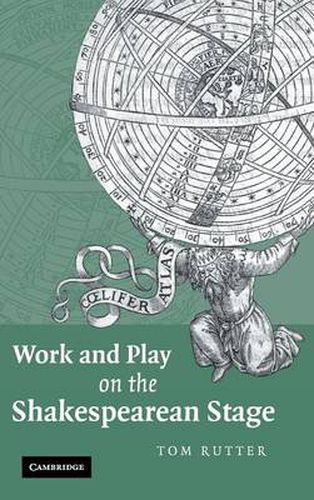Readings Newsletter
Become a Readings Member to make your shopping experience even easier.
Sign in or sign up for free!
You’re not far away from qualifying for FREE standard shipping within Australia
You’ve qualified for FREE standard shipping within Australia
The cart is loading…






Time and again, early modern plays show people at work: shoemaking, grave-digging, and professional acting are just some of the forms of labour that theatregoers could have seen depicted on stage in 1599 and 1600. Tom Rutter demonstrates how such representations were shaped by the theatre’s own problematic relationship with work: actors earned their living through playing, a practice that many considered idle and illegitimate, while plays were criticised for enticing servants and apprentices from their labour. As a result, the drama of Shakespeare’s time became the focal point of wider debates over what counted as work, who should have to do it, and how it should be valued. This book describes changing beliefs about work in the sixteenth century, and shows how different ways of conceptualising the work of the governing class inform Shakespeare’s histories. It identifies important contrasts between plays written for the adult and child repertories.
$9.00 standard shipping within Australia
FREE standard shipping within Australia for orders over $100.00
Express & International shipping calculated at checkout
Time and again, early modern plays show people at work: shoemaking, grave-digging, and professional acting are just some of the forms of labour that theatregoers could have seen depicted on stage in 1599 and 1600. Tom Rutter demonstrates how such representations were shaped by the theatre’s own problematic relationship with work: actors earned their living through playing, a practice that many considered idle and illegitimate, while plays were criticised for enticing servants and apprentices from their labour. As a result, the drama of Shakespeare’s time became the focal point of wider debates over what counted as work, who should have to do it, and how it should be valued. This book describes changing beliefs about work in the sixteenth century, and shows how different ways of conceptualising the work of the governing class inform Shakespeare’s histories. It identifies important contrasts between plays written for the adult and child repertories.